Navigating the world of work can be tricky, and that’s where employment and labor law steps in. These laws govern the relationship between employers and employees, ensuring fair treatment and protecting rights. what is employment and labor law? Whether you’re a business owner or an employee, understanding these regulations is crucial for fostering a healthy workplace dynamic.
I’ve seen firsthand how these laws impact daily operations and individual rights. From wage disputes to workplace safety, employment and labor law encompasses a wide range of issues that affect us all. In this article, I’ll break down the essentials of these laws and highlight their significance in today’s ever-evolving job market.
Key Takeaways
- Definition of Employment and Labor Law: These laws govern the relationship between employers and employees, addressing workplace safety, wage disputes, and employee rights.
- Employee Rights: Key employee rights include fair compensation, safe working conditions, non-discrimination, and the right to privacy in the workplace.
- Employer Obligations: Employers are required to provide fair wages, ensure workplace safety, prevent discrimination, and maintain accurate employment records.
- Collective Bargaining and Unions: Labor law facilitates collective bargaining, enabling workers to negotiate employment terms together. Labor unions play a critical role in advocating for employee rights.
- Differences Between Employment and Labor Law: While employment law focuses on individual employee rights, labor law emphasizes the collective rights of worker groups, especially regarding union activities.
- Importance of Compliance: Adhering to employment and labor laws is essential for fostering a fair workplace, reducing legal risks, and enhancing overall productivity and morale.
What Is Employment And Labor Law
Employment and labor law encompasses a body of regulations governing the relationship between employers and employees. This area of law addresses various issues such as workplace safety, wages, employee benefits, collective bargaining, and employment discrimination. Understanding these laws is essential for both employers and employees to ensure compliance and protect rights.
Employment law specifically focuses on the rights of employees, covering topics like hiring practices, wrongful termination, and workplace harassment. For instance, the Fair Labor Standards Act (FLSA) establishes minimum wage and overtime pay standards. This law ensures employees receive fair compensation for their labor.
Labor law, on the other hand, deals with the rights of workers to organize and engage in collective bargaining. The National Labor Relations Act (NLRA) protects employees’ rights to form unions and participate in collective activities. This legislation ensures that workers can negotiate terms of employment without fear of retaliation from their employers.
Both employment and labor laws play a vital role in promoting fair treatment in the workplace. Compliance with these regulations not only protects individual rights but also fosters a respectful and equitable work environment, enhancing overall productivity.
Key Concepts In Employment Law
Employment law encompasses significant rights and responsibilities that shape the employer-employee relationship. Understanding these concepts fosters a healthier workplace dynamic.
Employee Rights
Employees possess various rights designed to protect them in the workplace. These rights include:
- Right to Fair Compensation: Employees must receive at least the minimum wage, as dictated by the Fair Labor Standards Act (FLSA). This law safeguards against underpayment.
- Right to Safe Working Conditions: The Occupational Safety and Health Administration (OSHA) establishes standards to ensure employees work in safe environments.
- Right to Non-Discrimination: Laws like Title VII of the Civil Rights Act prohibit discrimination based on race, color, religion, sex, or national origin. This ensures equal opportunities for all employees.
- Right to Workers’ Compensation: If injured on the job, employees can claim workers’ compensation benefits, providing financial support during recovery.
- Right to Privacy: Employees have a reasonable expectation of privacy regarding personal information and communications in the workplace.
Employer Obligations
Employers carry critical obligations toward their employees, which include:
- Provide Fair Wages: Employers must comply with wage laws, ensuring timely payment for all hours worked, including overtime when applicable.
- Ensure Workplace Safety: Employers must adhere to OSHA regulations, implementing necessary safety protocols to protect employees from hazards.
- Prevent Discrimination: Employers must create and enforce policies that promote diversity and prohibit discrimination based on the protected characteristics outlined in federal and state laws.
- Offer Reasonable Accommodations: Under the Americans with Disabilities Act (ADA), employers must provide suitable accommodations for employees with disabilities to perform their essential job functions.
- Maintain Accurate Records: Employers must keep accurate records of employee hours worked, wages paid, and any other documentation required by labor laws.
These key concepts in employment law not only uphold employee rights but also set clear expectations for employers, facilitating a fair and equitable work environment.
Key Concepts In Labor Law
Understanding key concepts in labor law is crucial for both employers and employees. These concepts outline the framework for workplace relations, ensuring rights are respected and obligations fulfilled.
Collective Bargaining
Collective bargaining represents the process where employers and employees negotiate terms of employment. This process establishes conditions regarding wages, benefits, hours, and workplace policies. It’s crucial for ensuring that workers’ voices are heard, particularly when negotiating against larger employers. The National Labor Relations Act actively supports this process, ensuring that employees can organize and engage in negotiations without retaliation. Successful collective bargaining results in collective bargaining agreements, which serve as binding contracts that benefit both parties.
Labor Unions
Labor unions play a vital role in protecting worker rights and improving workplace conditions. These organizations unite workers to advocate for collective interest, increasing their negotiating power. Membership in a union provides employees with access to resources like legal assistance, job training, and collective representation during disputes. Unions help enforce fair workplace standards, challenging issues like wage theft and unsafe working conditions. Understanding the function of labor unions is essential for recognizing how they contribute to a balanced employer-employee relationship.
Differences Between Employment Law And Labor Law
Employment law and labor law, while related, address different aspects of workplace governance.
- Focus Areas: Employment law concentrates on the rights of individual employees within the workplace, such as hiring practices, wrongful termination, and anti-discrimination policies. Labor law emphasizes the collective rights of groups of workers, focusing on unionization and collective bargaining.
- Regulatory Framework: Employment law is governed by various federal and state laws, including the Fair Labor Standards Act (FLSA) and Title VII of the Civil Rights Act. Labor law is primarily governed by the National Labor Relations Act (NLRA), which outlines the rights of unions and employees to engage in collective activities.
- Parties Involved: Employment law involves the employer and individual employees, addressing their respective rights and responsibilities. Labor law engages broader groups like unions and employers, concerning group rights and collective negotiations.
- Scope of Regulation: Employment law includes a wide range of issues such as workplace safety, discrimination, benefits, and wrongful termination. Labor law largely pertains to labor relations, including union elections, strikes, and collective bargaining agreements.
- Enforcement Mechanisms: Enforcement of employment law often takes place through individual claims made by employees to government agencies, like the Equal Employment Opportunity Commission (EEOC). Labor law enforcement typically involves collective actions or grievances handled through labor boards or union negotiations.
Understanding these distinctions clarifies the complementary roles these laws play in maintaining fair and equitable workplace environments.
Importance Of Employment And Labor Law
Employment and labor law plays a crucial role in shaping workplace dynamics, ensuring fairness and protecting rights for both employees and employers. Understanding these laws fosters a positive work environment where trust and respect are paramount.
Protecting Employee Rights
Employee rights include fair compensation, safe working conditions, and protection against discrimination. Laws like the Fair Labor Standards Act (FLSA) ensure that employees receive the wages they deserve. This provides a framework for resolving disputes over pay and reinforces the importance of transparency in compensation practices.
Encouraging Fair Treatment
Employment and labor law encourages fair treatment in the workplace. Regulations surrounding workplace harassment and wrongful termination create a safer environment for all employees. It ensures that everyone is aware of their rights and can take action if those rights are violated, thus maintaining morale and productivity.
Supporting Collective Bargaining
Collective bargaining stands as a key aspect of labor law, allowing workers to negotiate employment terms collectively. The National Labor Relations Act (NLRA) protects these rights, promoting cooperation between employees and employers. This negotiation process fosters a sense of community among employees and can lead to enhanced benefits and better working conditions.
Promoting Workplace Safety
Workplace safety regulations establish minimum standards for health and safety. Laws that govern this area protect employees from hazardous conditions and ensure compliance with safety protocols. An emphasis on workplace safety contributes to lower injury rates and promotes overall employee well-being.
Fostering Equality
Employment and labor law aims to eliminate discrimination in the workplace. By enforcing equal opportunity regulations, these laws ensure employees are treated fairly, regardless of race, gender, or other protected characteristics. This fosters a diverse workforce that can contribute to creativity and innovation.
Enhancing Productivity
Fair treatment and clear regulations lead to higher employee satisfaction and retention. When employees understand their rights and feel protected, they’re more likely to be engaged and productive. This improved productivity directly contributes to the overall success of organizations.
Regulatory Compliance
Compliance with employment and labor laws is essential for businesses. Non-compliance can result in legal disputes, fines, or damage to a company’s reputation. Understanding and adhering to these laws minimizes risks and promotes a stable business environment.
By recognizing the importance of employment and labor law, I can better appreciate how these regulations shape a healthier workplace. These laws not only protect individual rights but also contribute to the overall success and harmony in the workplace.
Labor Law
what is employment and labor law? Understanding employment and labor law is crucial for anyone navigating the workplace. These laws not only protect individual rights but also create a framework for fair treatment and mutual respect between employers and employees.
I’ve seen firsthand how compliance with these regulations can lead to a more productive and harmonious work environment. When both parties are aware of their rights and responsibilities, it fosters trust and encourages open communication.
As we continue to evolve in our professional lives, staying informed about these laws will empower us to advocate for ourselves and others. Embracing this knowledge is essential for building a workplace where everyone can thrive.



